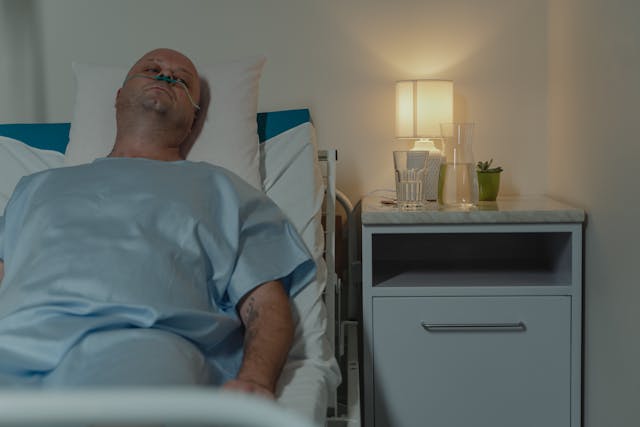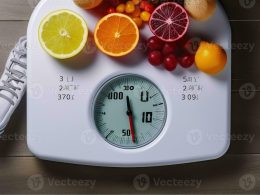Kidney disease often develops quietly. You may feel fine at first, but your body may start giving small signs over time. The tricky part? These signs often seem harmless. But if ignored, they can lead to serious damage.
You might be wondering how to tell if your kidney function is getting worse. Well, there are several red flags your body can show. In this blog, we’ll break down the symptoms you should watch closely. These are signs that could signal kidney problems, especially as the condition progresses.
Why Kidney Disease Gets Worse Over Time
Kidneys play a key role in removing waste, balancing fluids, and supporting healthy blood pressure. When they start to slow down, the effects show up across your body.
Chronic kidney disease (CKD) often worsens due to other health issues. These include high blood pressure, uncontrolled blood sugar, or repeated use of certain medications. Furthermore, many people don’t notice early symptoms. This delay makes it harder to slow down damage later.
Therefore, knowing the signs early can help protect your health. Catching them gives you more time to act, get tested, and make better decisions.
Read More: PRP Hair Treatment: How Much Blood Is Required?
Swelling That Becomes More Noticeable and Frequent
When your kidneys work properly, they remove extra salt and water from the body. But when their function drops, fluid starts to build up in different areas.
Swelling, also called edema, often shows up in:
- Ankles or feet
- Fingers or hands
- Eyelids or under the eyes
Moreover, you may feel puffiness when you wake up. Your shoes or rings might feel tight by the afternoon. This kind of swelling often worsens during the day.
Additionally, pressing a finger into swollen skin might leave a small dent. That means fluid is sitting in your tissues instead of being filtered out.
If this happens often or feels worse over time, it’s smart to talk to your doctor. It could mean your kidneys are not removing enough fluid.
Fatigue and Trouble Thinking Clearly
Feeling tired is one thing. But if you’re constantly drained, even after resting, it could point to kidney problems.
When kidneys don’t remove waste properly, toxins stay in your blood. That makes it harder for your body to work as it should. You may feel tired, slow, or mentally foggy.
Additionally, many people with kidney issues develop anemia. This means your blood carries less oxygen, which leads to:
- Low energy
- Shortness of breath
- Dizziness or lightheadedness
- Trouble focusing
Furthermore, daily tasks like walking or thinking clearly may feel harder. If your tiredness feels new or worse than usual, don’t ignore it.
Changes in Skin Texture and Itching
Itchy skin is a sign many people overlook. However, as kidney disease progresses, your skin may feel dry, flaky, or irritated.
The reason is simple. Waste builds up in the blood when kidneys don’t work well. That buildup can irritate nerves in the skin.
Moreover, you may notice:
- Itching without a rash
- Dry patches on arms, legs, or back
- Pale or yellowish skin
Additionally, the itching may feel worse at night or after showers. Creams may offer short-term relief, but the cause remains inside the body.
As a result, if skin issues don’t improve with care, consider kidney function as a possible cause.
Nausea, Vomiting, or Changes in Appetite
As kidneys lose function, waste affects the stomach too. Many people begin to feel sick, especially after meals.
This often leads to:
- Nausea or queasiness
- Poor appetite
- Metallic taste in the mouth
- Weight loss
Moreover, food may lose its taste or smell strange. Some people even stop enjoying their favorite meals.
Additionally, long-term changes in eating habits can weaken your immune system. You may feel more tired, and recovery from illness may take longer.
Therefore, if you find yourself skipping meals often, it may be more than a simple stomach issue.
Breathing Becomes Harder During Daily Activities
Shortness of breath can show up when kidneys stop removing enough fluid. That fluid may collect in your lungs, making it harder to breathe.
You may notice this when:
- Climbing stairs
- Walking short distances
- Lying flat on your back
Furthermore, this symptom may appear slowly. At first, you may blame it on aging or lack of fitness.
Additionally, anemia may also contribute. Less oxygen in the blood means you feel winded faster than usual.
Therefore, breathing changes—especially if new—should never be ignored. They could point to a bigger issue with your kidneys or heart.
Other Symptoms That May Get Worse Over Time
Worsening kidney disease often brings several symptoms at once. While each may seem minor, together they paint a clear picture.
Watch for these changes:
- Urinating more or less than usual
- Foamy or bloody urine
- Muscle cramps, especially at night
- Bad breath or a metallic taste
- Feeling cold even in warm weather
Moreover, these signs often get stronger as kidney function drops. Even small changes that last more than a week may point to deeper problems.
What to Do If These Signs Sound Familiar
If several of these symptoms feel familiar, you should take action. Don’t panic—but don’t ignore them either.
Here’s what you can do:
- Write down when symptoms started
- Note how often they appear
- Make an appointment with your doctor
- Ask for blood and urine tests
- Share any family history of kidney problems
Furthermore, acting early can slow or stop damage before it gets worse. Kidney disease doesn’t always need strong treatment early on. In many cases, simple changes can help a lot.
Who Faces Higher Risk? Should You Be More Watchful?
Some people need to stay extra alert. If you have any of the following conditions, you may face a higher risk of kidney disease:
- High blood pressure
- Diabetes or blood sugar problems
- Family history of kidney disease
- Long-term use of pain relievers
- Heart conditions
- Age above 60
Additionally, people in these groups should get regular kidney checks. Simple lab tests can find problems long before symptoms show up.
Moreover, watching your salt, sugar, and protein intake can help lower your risk. Your kidneys stay healthier when your overall health is strong.
Conclusion:
Worsening kidney disease doesn’t always cause loud symptoms. But the body finds ways to warn you. You just need to notice the changes. Swelling, fatigue, itching, poor appetite, and breathing trouble often show up as kidney function drops. These may feel small at first but often grow worse with time.
Moreover, spotting these signs early gives you the power to act. You can ask for tests, change your routine, and stay one step ahead of serious damage. Simple efforts, like tracking your symptoms or seeing your doctor, make a big difference. Waiting too long may limit your treatment choices.
If these symptoms sound familiar, it may be time to explore clinical trial options at Koch Research. You’ll get expert support, and you might help others too. The sooner you understand your body’s signals, the more control you gain over your kidney health.












